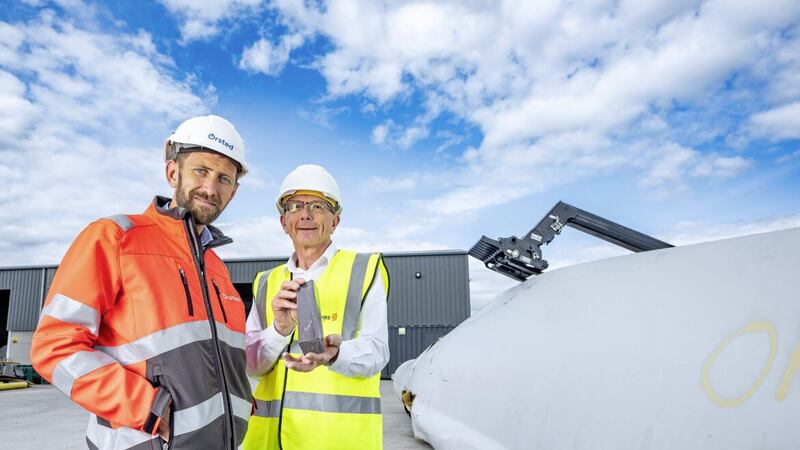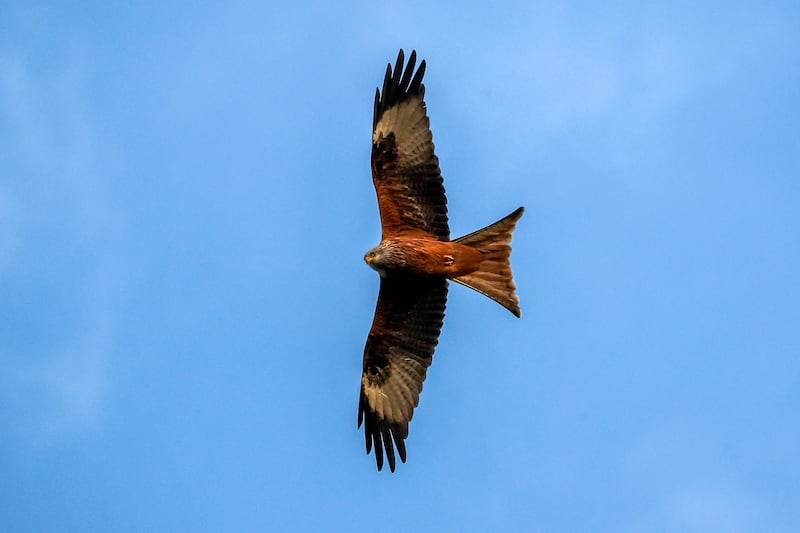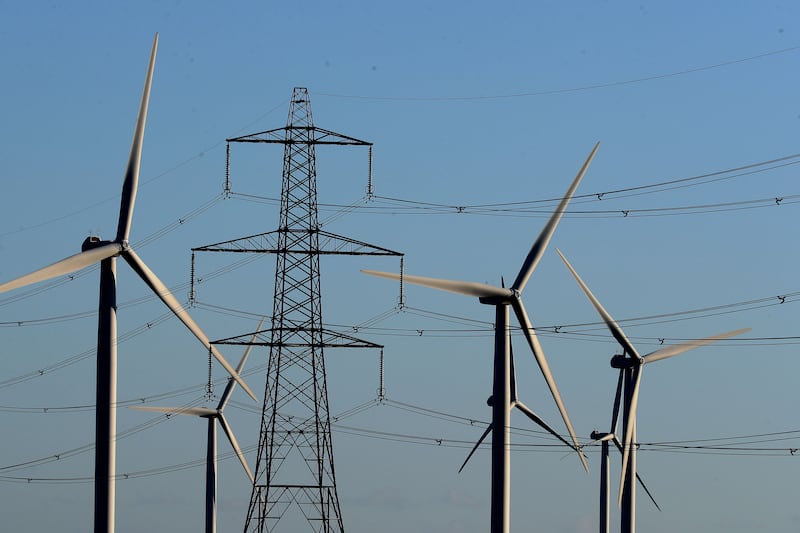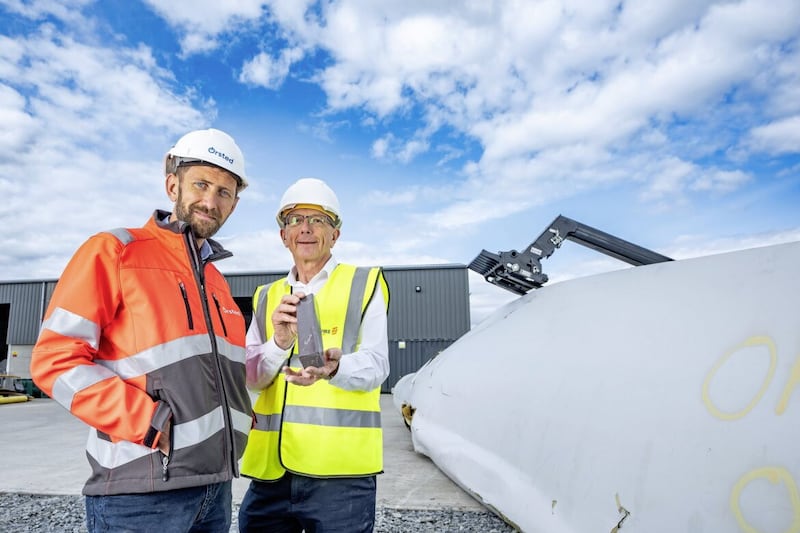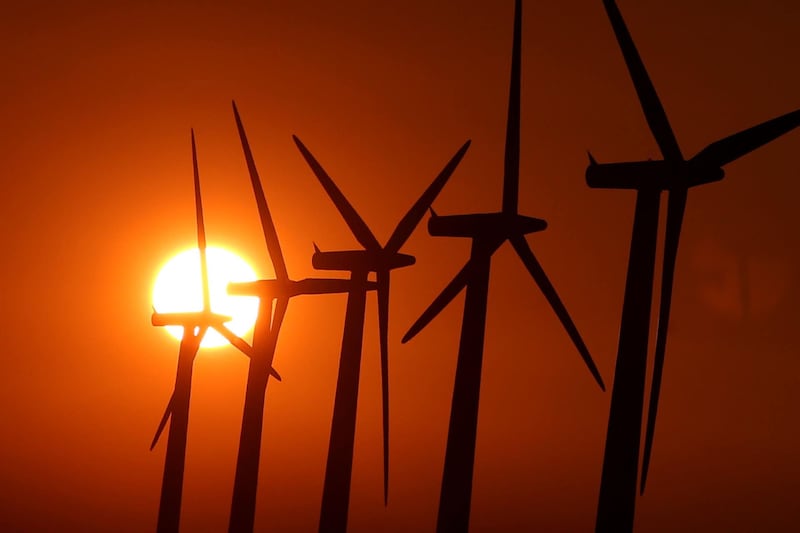LURGAN greentech specialist Plaswire is to partner with a Danish company in a unique project to recycle the blades from its onshore wind farms and turn them into a type of polymer brick for use in the construction industry.
Plaswire's link is with global wind giant Orsted, a £15 billion company with 8,000 employees and which operates a portfolio of 378 megawatts of onshore wind assets across the island of Ireland.
It has just completed pilot project which saw three massive blades from a decommissioned turbine at its Owenreagh farm in Co Tyrone successfully recycled.
The blades were first cleaned and shredded, then granulated and finally utilised in Plaswire's smart RX Polymer, a material typically used in the construction industry.
The pilot project followed a commitment made by Orsted in 2021 to either reuse, recycle, or recover all of the wind turbine blades in its global portfolio of onshore and offshore wind farms upon decommissioning.
During the pilot, Plaswire (www.plaswire.com) developed a cost-efficient and scalable method to recycle 100% of Orsted’s turbine blades, ensuring that valuable resources are turned into new products that can substitute materials such as virgin plastics, steel, and concrete instead of simply going to waste.
The partnership is seen as offering opportunities for the wider wind energy industry, where today between 85% and 95% of a wind turbine can be recycled.
But the recycling of wind turbine blades remains a challenge, as the blades are designed to be lightweight, yet durable, making them challenging to break apart. Globally, most decommissioned wind turbines blades currently end up in landfill. ?
Ray O’Connell, director of operations at Orsted UK & Ireland, said: “Through a pilot with Plaswire, we’re delighted to have developed a cost-efficient method to ensure that 100% of our wind turbine blades can be sustainably recycled. We want to help create a world that runs entirely on green energy, and we want to do so in a sustainable way.”
“As some of our onshore fleet approach their end of life, we are excited to have found a local partner, who has the technology to break down our turbine blades and remould the materials into new, durable RX polymer.
“In this way, Plaswire is helping us move towards more circular decommissioning practices where we strive to turn waste into new, useful resources. We are particularly excited that this can be done on the island of Ireland without incurring additional carbon costs associated with international shipping.“
Andrew Billingsley, chief executive at Plaswire, added: “The sustainable recycling of wind turbine blades is a global challenge and we are pleased to collaborate with Orsted to develop a scalable solution for the wind industry to avoid blades ending up in landfill.
“Already, we have grown to employ 14 people in our Lurgan factory. We have recently purchased additional land to store wind turbine blades and invested in a larger composite polymer recycling processing machine which will enable us to scale our business.
“We are excited about the economic opportunities that our innovative solution can bring to Lurgan and the surrounding area while also reducing carbon emissions from complex waste.”
Brenda Burke, director of circular economy in the Department for the Economy, welcomed the Orsted-Plaswire partnership, saying: “This is a great example of how businesses can work together to ensure waste is minimised and the value of materials is retained in the economy.
“It represents an innovative approach to how we rethink our use of products and resources, and work toward an economic model where business, people and planet can all flourish. The partnership aligns to the Department for the Economy’s commitment to developing a circular economy with responsible production and consumption at its core.”
